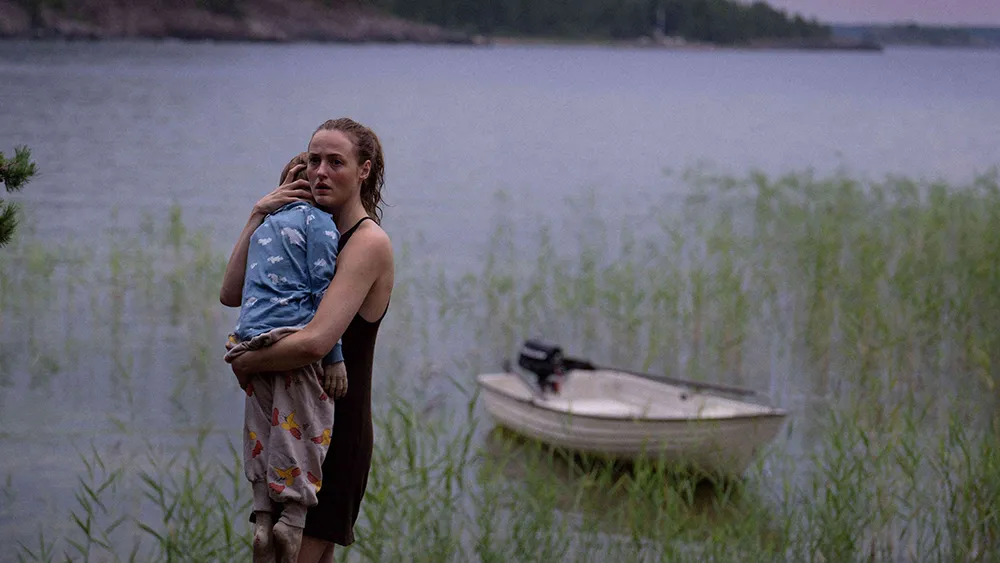Handling the Undead
by George Wolf
With his source novel and screenplay for Let the Right One In, John Ajvide Lindqvist mixed vampire bloodlust and emotional bonds. Handling the Undead (Håndtering av udøde) finds Lindqyist turning similar attention to zombies, teaming with director/co-writer Thea Hvistendahl for a deeply atmospheric tale of grief, longing, and dread-filled reunions.
We follow three families in Norway, each one dealing with tragedy. An old man and his daughter (Renate Reinsve, The Worst Person in the World) have lost their young son/grandson; an elderly woman still grieves for her lifelong partner; while a man (Anders Danielsen Lie from The Worst Person in the World and Personal Shopper) and his children struggle to accept that the wife and mother they depend on (Bahar Pars) may now be gone.
Hvistendahl sets the stakes with minimal dialog and maximum sorrow. Characters move through sweaty summer days in a fog of grief that’s expertly defined by cinematographer Pål Ulvik Rokseth. They grasp at memories and battle regret over feelings left unexpressed.
And then an unexplained electro-magnetic event hits Oslo…and the dead aren’t so dead anymore.
In the film’s first two acts, Hvistendahl unveils these awakenings with a barren and foreboding tenderness. Everyone knows this can’t end well, but the tears of joy that come from seemingly answered prayers create moments that straddle a fascinating line between touching and horrifying.
How much of our grief is defined by selfishness? And how far could it push us before we finally let go?
Those may not be new themes for the zombie landscape, but the way Hvistendahl frames the inevitable bloodshed goes a long way toward making her shift of focus less jarring. While so much time is spent exploring the pain of those left behind, we know that eventually zombies gonna zombie.
And indeed they do, but Hvistendahl sidesteps excess carnage for a more subtle form of gruesome. The interactions between the living and the undead take on a surreal, experimental quality that seems plenty curious about whether we’d really think dead is better.
After all, the grieving family in Pet Sematary went asking for trouble. Here, the trouble comes calling, and Handling the Undead answers with a bleak but compelling study of desperation meeting inhuman connection.



